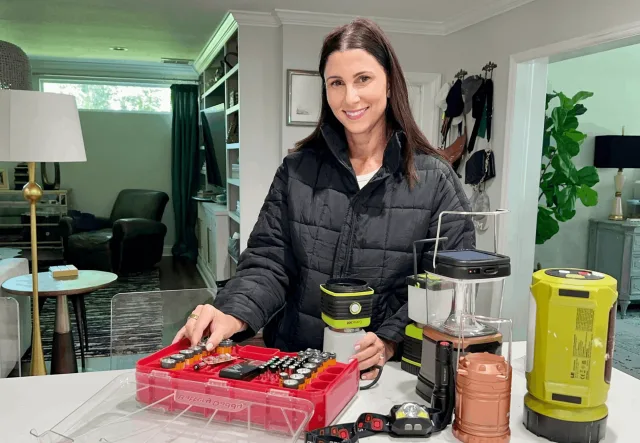Co-parenting, the shared responsibility of raising children after separation or divorce, can be both challenging and rewarding. While the end of a romantic relationship marks a significant transition, it doesn’t have to spell the end of effective parenting. In fact, with open communication, mutual respect, and a focus on the well-being of the children, co-parenting can flourish into a positive and nurturing arrangement. In this blog post, we’ll delve into the principles and strategies essential for successful co-parenting, offering guidance and co-parenting resources to those embarking on this journey.
A Guide to Successful Co-Parenting Through Co-Parenting Resources
1. Communication is Key
Effective communication lies at the heart of successful co-parenting. Open and honest dialogue between co-parents is essential for making decisions regarding the children’s upbringing, scheduling visitations, and addressing any concerns that may arise. It’s important to establish a communication method that works for both parties, whether it’s through email, text messaging, or a dedicated co-parenting app. Additionally, maintaining a respectful and courteous tone, even during disagreements, can help foster a positive co-parenting dynamic.
2. Prioritize the Children’s Well-Being
At the core of co-parenting is the shared goal of providing a stable and nurturing environment for the children. In addition, both parents should prioritize the children’s well-being above personal conflicts or grievances. This means setting aside differences and focusing on what’s best for the children’s emotional, physical, and developmental needs. Co-parents can also work together to establish consistent rules, routines, and boundaries across households, ensuring a sense of stability and security for the children.

3. Collaborate on Decision-Making
Co-parenting requires collaboration and compromise when it comes to making important decisions regarding the children’s upbringing. Whether it’s choosing schools, healthcare providers, childcare providers, or extracurricular activities, both parents should have a voice in the decision-making process. By involving each other in discussions and considering each other’s perspectives, co-parents can reach agreements that reflect the children’s best interests. It’s also important to approach decision-making with flexibility and a willingness to find common ground.
4. Respect Boundaries and Maintain Consistency
While co-parents may no longer share a household, it’s crucial to maintain consistency and respect each other’s boundaries. This includes adhering to agreed-upon visitation schedules, being punctual for pickups and drop-offs, and respecting each other’s parenting styles. In fact, consistency across households can help minimize confusion and anxiety for the children, fostering a sense of stability and routine. Additionally, respecting each other’s privacy and personal space can help preserve a healthy co-parenting relationship.
5. Seek Support and Co-Parenting Resources When Needed
Navigating the complexities of co-parenting can be challenging, and it’s okay to seek support when needed. Whether it’s through therapy, support groups, or online resources, there are plenty of avenues for co-parents to find guidance and encouragement. Seeking professional mediation or co-parenting counseling can also be beneficial for resolving conflicts and improving communication skills. Remember, co-parenting is a journey, and it’s essential to prioritize self-care and seek support when navigating its ups and downs.
Top Co-Parenting Resources
Use a Co-Parenting App
Co-parenting can be a challenging journey, especially in today’s fast-paced world. With shared custody arrangements becoming increasingly common, it’s essential for co-parents to effectively communicate, coordinate schedules, and manage responsibilities to ensure the well-being of their children. Fortunately, technology has evolved to offer solutions tailored to the unique needs of co-parenting situations.
One of the best co-parenting apps of 2024 is Our Family Wizard. It is designed to streamline communication, scheduling, and organization for separated or divorced parents. The OurFamilyWizard website, iOS and Android mobile apps help parents to manage child custody schedules and co-parenting information from separate homes.
OurFamilyWizard has long been a staple in the realm of co-parenting apps, and for good reason. This comprehensive platform offers a wide range of features to simplify co-parenting responsibilities. From shared calendars and expense tracking to messaging and documentation storage, OurFamilyWizard provides a centralized hub for all co-parenting communication and collaboration. Additionally, it includes tools for managing medical records, school information, and other essential documents, ensuring that both parents stay informed and involved in their child’s life. It is a court-approved secure app and platform for better communication between co-parents. In fact, co-parent messages on OurFamilyWizard can never be edited, deleted, or retracted.
Don’t Forget Your Co-Parent at Holidays and Birthdays
Co-parenting relationships thrive on communication, understanding, and occasional gestures of appreciation. Giving a gift to a co-parent can be a powerful way to strengthen bonds and also foster a positive co-parenting dynamic. Let’s explore practical tips to help you navigate the art of giving gifts to co-parents with ease.
1. Consider Their Interests and Preferences
Tailor gifts to their tastes: Take note of your co-parent’s hobbies, interests, and preferences to choose a gift that resonates with them personally. This thoughtful approach enhances the significance of the gesture.
2. Foster Open Communication
Discuss gift-giving expectations. Maintain open lines of communication with your co-parent about gift exchanges. In fact, clear communication helps ensure mutual understanding and prevents misunderstandings.
3. Opt for Practicality
Choose useful gifts: Select gifts that serve a practical purpose and also align with your co-parent’s daily needs or activities. Practical gifts are both appreciated and functional in a co-parenting context.
4. Align with Co-Parenting Values
Select gifts that support shared goals: Consider how your gift contributes to your shared parenting values and objectives. Gifts that promote cooperation and mutual respect enhance the co-parenting relationship.
5. Respect Personal Boundaries
Honor their comfort levels: Respect your co-parent’s boundaries and preferences regarding gift-giving. Avoid gifts that may be overly personal or intrusive, and always prioritize their comfort and boundaries.
6. Embrace Thoughtful Gestures
Focus on meaningful gestures: Thoughtful gestures such as handwritten notes, homemade gifts, or acts of service can convey sincerity and appreciation. These gestures strengthen the emotional connection between co-parents.
7. Prioritize Shared Experiences
Plan experiential gifts: Create lasting memories by gifting shared experiences such as a family outing or a special activity. These shared moments foster bonding and reinforce the collaborative spirit of co-parenting.
Giving gifts to co-parents is a wonderful way to nurture your co-parenting relationship and celebrate your shared journey. By considering their interests, fostering open communication, opting for practicality, aligning with co-parenting values, respecting boundaries, embracing thoughtful gestures, and prioritizing shared experiences, you can navigate the art of giving with finesse. These thoughtful gestures not only strengthen the co-parenting bond but also contribute to a supportive and harmonious co-parenting dynamic that benefits everyone involved.
Co-parenting presents its own set of challenges, but with commitment, communication, and collaboration, it can also be incredibly rewarding.
By prioritizing the children’s well-being, maintaining open communication, and respecting each other’s boundaries, co-parents can foster a positive and nurturing environment for their children to thrive. With patience, empathy, and a willingness to work together, co-parenting can lay the foundation for strong and resilient family relationships that endure long into the future.
As an Amazon Associate, Safe in the Seat earns from qualifying purchases.






